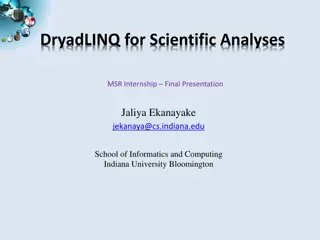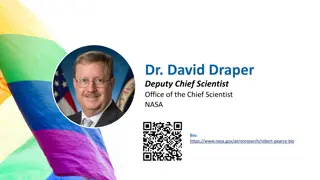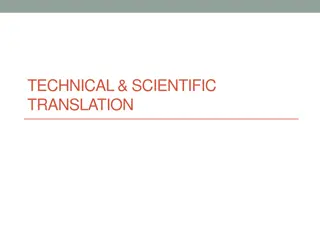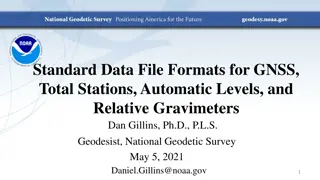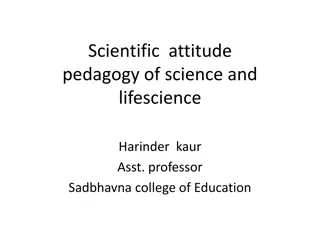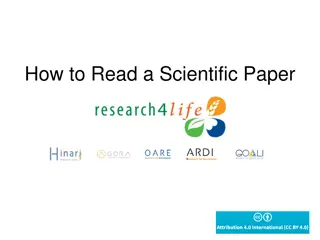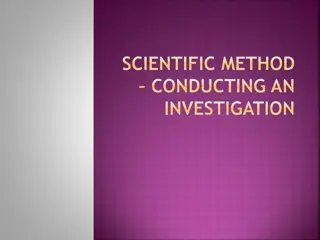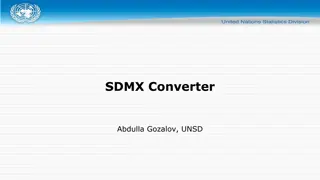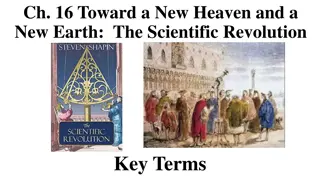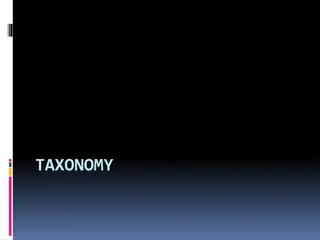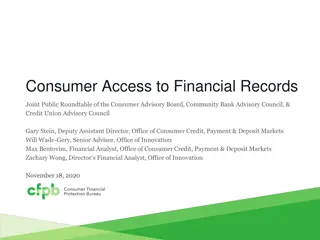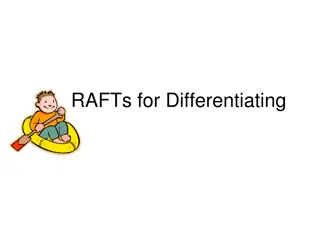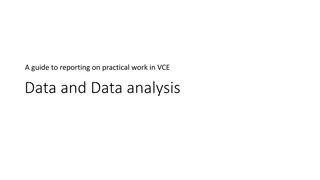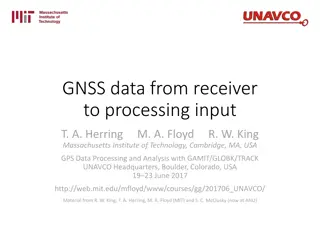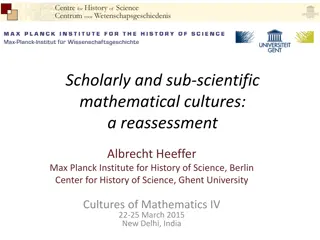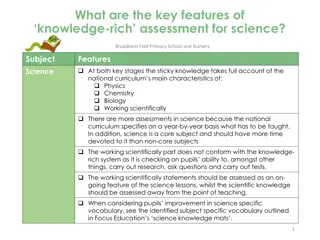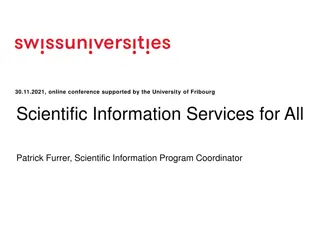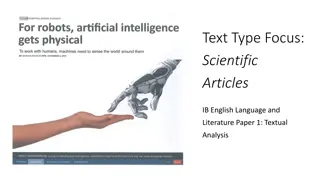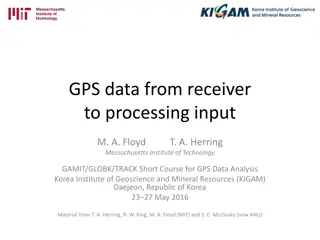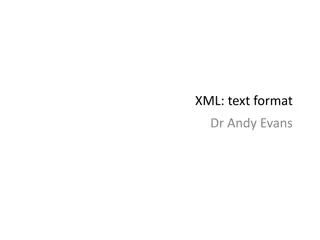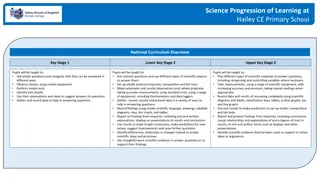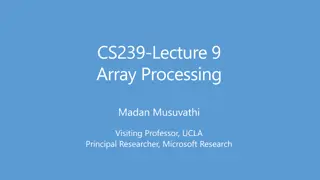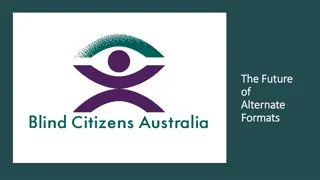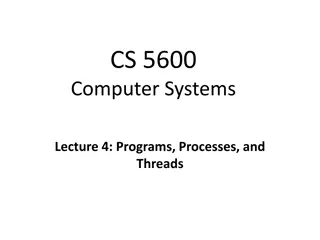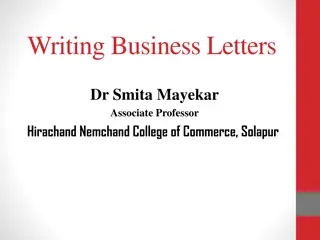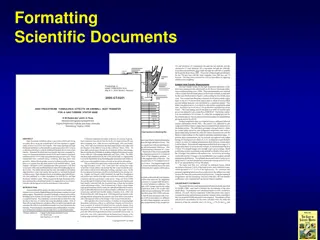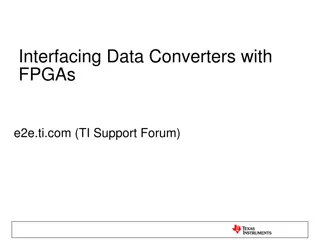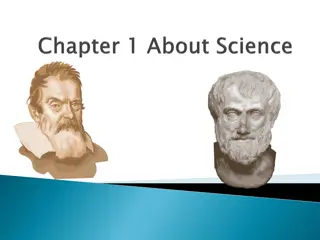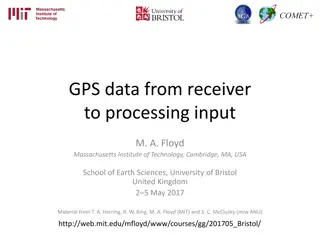Enhancing Scientific Literacy in Early Years Play-Based Learning
This PhD research proposal explores scientific literacy among children in play-based learning, focusing on everyday concepts and their application to scientific understanding. The study aims to implement Vygotsky's sociocultural theory to enhance children's scientific literacy through Vision 1 and V
7 views • 19 slides
Exploring the PROTEOCURE COST Action: Targeting Proteolysis for Proteome Remodeling
The PROTEOCURE COST Action focuses on targeting proteolysis for proteome remodeling, aiming to enhance Europe's scientific and technological capacity through collaboration across various fields and career stages. Participating in this initiative offers financial support, scientific networking, and c
0 views • 17 slides
Understanding Climate Change through Scientific Inquiry
Explore the role of science in addressing climate change, identifying scientific questions, discussing different disciplines involved, and analyzing the strength and limitations of scientific methods. Engage in activities to understand how scientific questions are formulated and categorized for inve
2 views • 22 slides
Enhancing Wheat Data Interoperability for Sustainable Production
The wheat research community faces challenges in meeting the increasing demand for wheat production due to a lack of data harmonization and standards. The Wheat Data Interoperability Working Group aims to improve the interoperability of wheat-related data through shared guidelines, tools, and recomm
4 views • 10 slides
Evaluation of DryadLINQ for Scientific Analyses
DryadLINQ was evaluated for scientific analyses in the context of developing and comparing various scientific applications with similar MapReduce implementations. The study aimed to assess the usability of DryadLINQ, create scientific applications utilizing it, and analyze their performance against
0 views • 20 slides
Overview of NASA's Office of the Chief Scientist and Deputy Chief Scientist Dr. David Draper
The Office of the Chief Scientist (OCS) at NASA plays a vital role in advising, advocating, and representing the agency in various scientific matters. Dr. David Draper serves as the Deputy Chief Scientist. The OCS leads initiatives related to scientific integrity, research security, citizen science,
1 views • 11 slides
Understanding the Scientific Method in Measurements and Calculations
Explore the scientific method in detail, including observing, collecting data, formulating hypotheses, testing hypotheses, and formulating theories with practical examples. Understand the importance of experimentation and how it leads to the development of scientific theories. Engage in activities t
6 views • 43 slides
Understanding Scientific Translation: A Vital Tool for Advancing Knowledge
Scientific translation is a specialized practice that involves accurately translating complex terms in fields such as science and technology to facilitate global knowledge exchange and advancement. It requires precision, fidelity to source material, and a deep understanding of technical terminology
0 views • 60 slides
Standard Data File Formats for Geospatial Instruments
Understanding the importance of standard file formats for GNSS, total stations, automatic levels, and relative gravimeters to facilitate data exchange, processing, and preservation in the geospatial industry. Exploring the significance of RINEX and other XML-based formats, along with examples and th
2 views • 30 slides
Understanding Scientific Attitude and Pedagogy of Science
Scientific attitude involves open-mindedness, curiosity, rationality, and a desire for accurate knowledge. It includes characteristics such as critical thinking, respect for diverse viewpoints, and a reliance on verified information. Developing a scientific attitude involves studying superstitions,
1 views • 6 slides
Guide to Reading Scientific Papers
Understanding how to read a scientific paper is crucial for researchers and students alike. This guide covers the types of scientific papers, organization of a paper, and the key steps to properly read and comprehend complex scientific information. It explains the different sections of a paper, such
0 views • 20 slides
Understanding the Scientific Method: A Comprehensive Guide
Exploring the scientific method and principles of scientific investigation, this guide covers the mindset of a scientist, steps in the scientific method, and key components like formulating questions, conducting research, creating hypotheses, performing experiments, and analyzing results. It emphasi
1 views • 21 slides
Understanding SDMX Converter: A Tool for Data Transformation
SDMX Converter is a versatile tool developed by Eurostat that enables the conversion of data between various formats and SDMX. It supports formats like CSV, Excel, and DSPL, making it easy to transform non-SDMX data into the SDMX format. The tool comes in different applications like desktop, command
0 views • 19 slides
Explore the Scientific Revolution
The Scientific Revolution marked a shift from the medieval worldview to a secular, rational, and materialistic perspective. Key terms such as geocentric and heliocentric conceptions, Cartesian dualism, rationalism, and the scientific method played pivotal roles in shaping this transformative period.
7 views • 10 slides
Understanding Taxonomy and Scientific Classification
Explore the world of taxonomy and scientific classification, from the discipline of classifying organisms to assigning scientific names using binomial nomenclature. Learn the importance of italicizing scientific names, distinguish between species, and understand Linnaeus's system of classification.
0 views • 19 slides
Understanding Consumer Access to Financial Records: Insights from Stakeholder Roundtable
Insights from a joint public roundtable on consumer access to financial records highlighted key points such as regulatory requirements under Dodd-Frank Act section 1033, market practices in leveraging consumer data, examples of use cases for consumer data, and stakeholder developments. The discussio
0 views • 12 slides
Differentiated RAFT Strategies for Engaging Writing Across the Curriculum
RAFTs, an engaging high-level strategy, encourage students to assume roles, consider audiences, write in specific formats, and explore topics. This method motivates students by offering choice and aligning with their interests and learning profiles. Differentiating RAFTs by readiness involves assign
0 views • 15 slides
Guide to Reporting on Practical Work in VCE Data Analysis
This comprehensive guide focuses on key science skills, scientific investigation, physics concepts, data collection methodologies, analysis techniques, scientific reporting, and more, essential for VCE students in their practical work. It covers topics such as independent, dependent, and controlled
0 views • 13 slides
Example of COI Disclosure Formats in Academic Presentations
These images provide examples of Conflict of Interest (COI) disclosure formats for oral and poster presentations in academic settings. They outline how authors can disclose any potential COIs in relation to their work over the past three years, including details on employment, stock ownership, paten
1 views • 4 slides
Understanding GNSS Data Processing with RINEX Formats
Explore the journey of GNSS data from receiver to processing input, focusing on the motivation behind the Receiver INdependent EXchange (RINEX) format and the evolution from RINEX 2 to RINEX 3. Learn about raw data formats, RINEX file conventions, and the significance of RINEX 2 data format in GPS o
1 views • 15 slides
Reassessing Scholarly and Sub-Scientific Mathematical Cultures
Scholarly and sub-scientific mathematical cultures are reevaluated through the works of Jens Hoyrup, focusing on the organized nature of sub-scientific knowledge. The distinction between theoretical and practical knowledge, applications to mathematical cultures, and misconceptions related to the sup
0 views • 53 slides
Key Features of Knowledge-Rich Assessment for Science at Broadbent Fold Primary School
Sticky knowledge in science assessment at Broadbent Fold Primary School encompasses Physics, Chemistry, Biology, and Working Scientifically. Assessments are detailed due to the structured national curriculum, with a focus on specific scientific vocabulary and practical applications. The ongoing asse
0 views • 20 slides
Scientific Services for All - Enhancing Scientific Information and Services
This online conference, supported by the University of Fribourg, focuses on providing scientific information and services for all. Led by Patrick Furrer, the Scientific Information Program Coordinator, the event delves into creating a network of services, developing a coordination structure, and sho
0 views • 12 slides
Quiz Review on Scientific Method and Graphing
Explore a quiz review covering topics related to scientific method, graphing, and experimental design. Understand key concepts such as hypothesis, scientific law, theory, variables, and experimental control through detailed questions and images. Test your knowledge on laboratory safety, inferences,
0 views • 14 slides
Unveiling the Art of Scientific Article Writing
Delve into the world of scientific articles in IB English Language and Literature Paper 1. Understand the purpose, use of language, comparisons, and visuals in scientific writing. Explore how these elements engage readers and simplify complex concepts through examples like stethoscopes and swamp wat
0 views • 9 slides
Fusion Science Department Enabling Research Projects 2021-2023
The Fusion Science Department Enabling Research Projects for 2021-2023 focus on developing novel fusion-relevant scientific and technological ideas. These projects, led by Principal Investigators, are distinct from main work packages and involve scientific planning, team collaboration, and resource
0 views • 11 slides
Understanding GPS Data Processing and RINEX Formats
Learn about the process of transferring GPS data from receivers to processing input, the importance of RINEX formats for universal data exchange, different raw data formats, motivation behind RINEX development, and details about RINEX versions. Explore RINEX 2 data format, its file naming convention
0 views • 13 slides
Evolution of Data Formats in Information Technology
Over time, as data space became more affordable, there has been a shift towards text-based data formats in information technology. This evolution has led to a transition from binary formats to text, making data more understandable for both humans and coders. The move to open data formats, based on i
0 views • 19 slides
Science Progression of Learning at Hailey CE Primary School Overview
This curriculum overview outlines the scientific learning progression for pupils at Hailey CE Primary School across Key Stage 1, Lower Key Stage 2, and Upper Key Stage 2. It details the development of scientific skills and knowledge, from asking simple questions and making observations to planning a
0 views • 11 slides
SciDB: Revolutionizing Data Management for Scientific Analytics
SciDB is an open-source analytical database designed to meet the complex data management needs of the scientific community. It offers a unique array-based data model that supports advanced linear algebra operations crucial for scientific analytics. By addressing the limitations of traditional relati
0 views • 39 slides
Evolution of Formats: Past, Present, and Future
Explore the transition of formats from cassette tapes to digital media, with insights on format preferences from 1997 to 2022. Learn about the changing landscape of alternate formats and the digital future. Contact Sally Aurisch, the CEO of Blind Citizens Australia, for more information.
0 views • 6 slides
Understanding Programs, Processes, and Threads in Computer Systems
In this comprehensive guide, we delve into the fundamental concepts of programs, processes, and threads in computer systems. Exploring topics such as dynamic code execution, program formats, and the execution of .exe files, we uncover the intricate workings of how software is executed and managed by
0 views • 110 slides
Understanding GIF and file formats in computer graphics
GIF and file formats play a crucial role in computer graphics, defining the structure of images and animations. GIF files consist of a logical screen populated with images or frames, while file formats are divided into segments containing images, extension blocks, and trailers. Extension blocks in G
0 views • 6 slides
Business Letter Writing Guidelines and Formats
Learn about the essential parts of a business letter, including the heading, addressee, subject, salutation, body paragraphs, complimentary close, and signature. Understand various formats/styles such as block, modified block, and semi-block. Discover sample formats and guidelines for writing effect
0 views • 23 slides
Mastering Scientific Document Formatting
Scientific writing demands diverse formats to cater to various needs, from formal reports to presentation slides. Understanding the nuances of format arrangements, typestyles, and avoiding pitfalls like excessive capitalization is key. Learn from examples and guidelines to enhance the visual appeal
0 views • 10 slides
FPGA Data Converter Interfacing Overview
Explore various I/O formats for interfacing data converters with FPGAs, including ADC parallel and serial formats like CMOS, LVDS, DDR. Learn about clock edge alignment, parallel, and true serial formats. Understand the differences between SDR and DDR, as well as considerations for clocking and data
0 views • 32 slides
Debate Formats Explained: CX vs. LD
Explore the world of debate with an overview of the CX (Cross-Examination) and LD (Lincoln-Douglas) formats. CX involves policy debates with teams advocating for and against resolutions related to US federal government policies, while LD focuses on one-on-one debates on values and philosophy. Discov
0 views • 11 slides
Understanding the Scientific Method: Pre-Test and Daily Agenda
Explore the process of science with a pre-test on the scientific method, followed by a detailed daily agenda covering activities like bell-ringers, reviews, and experimental design. Understand the nature of science, scientific reasoning, and the importance of variables, groups, and constants in inve
0 views • 51 slides
Evolution of Scientific Thought and the Scientific Method
Explore the evolution of scientific theories and methodologies through the works of influential figures like Aristotle, Copernicus, Galileo Galilei, and Francis Bacon. From the geocentric beliefs of Aristotle to the heliocentric model proposed by Copernicus, witness the shift in paradigms and the em
0 views • 14 slides
Understanding GPS Data Processing from Receiver to RINEX Format
Explore the journey of GPS data from receiver input to RINEX format, bridging the gap between various manufacturer-specific file formats. Learn about the motivation behind the Receiver INdependent EXchange (RINEX) format and how it enables universal exchange of raw GPS data. Delve into RINEX formats
0 views • 13 slides




